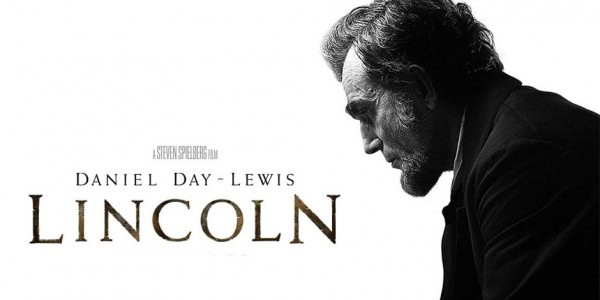Yesterday, we spent part of my day off in the nearby "metropolis" of Watertown, NY, taking in the movie, "Lincoln," directed by Steven Spielberg and featuring Daniel Day-Lewis as President Lincoln. It is a moving, powerful film, especially considering that it is ostensibly about the sordid business of politics in Washington. I don't want to do a review here, and if you're interested you can find plenty of them at Rotten Tomatoes. I do have a couple of thoughts, however.
First, part of the power of the film is in the story it tells about the past, and part of the power in the film is the obvious relevance that story has for us. Good history is always as much as about the present as it is the past, and this is good history (good history opens the past up for us in a way that is true to the times it describes). "Lincoln" is, thus, is a meaningful story that speaks to our experience. It is a parable. The messy, sordid politics of 1865 is, if in a different way, the messy, ideologically-driven politics of our day. Spielberg particularly zooms in on the role of Thaddeus Stevens (played by Tommy Lee Jones), one of the most ideological congressmen of his day, and in a dramatic moment shows Stevens caught up in the throes of having to compromise his principles for the sake of realizing them. The movie makes far more dramatically and effectively the point that I sought to make about compromising principles in a posting a couple of days ago (here).
A second thought (inevitably theological): understanding the work of the Spirit in our personal lives and in the course of the history of our human race is, at best, befuddling. It rests on faith and intuition. Still, one can't help but sense the subterranean, persistent work of the Spirit in the life of Abraham Lincoln and the politics of his day as he pushed for the passing of the Thirteenth Amendment ("Section 1. Neither slavery nor involuntary servitude, except as a punishment for crime whereof the party shall have been duly convicted, shall exist within the United States, or any place subject to their jurisdiction. Section 2. Congress shall have power to enforce this article by appropriate legislation."). This amendment is the embodiment of justice, and it lies at the very bedrock of our social contract as a nation. One could almost see in the tug of the Spirit pulling on certain political characters portrayed on the screen so aptly.
We passed the Thirteenth Amendment, but the Spirit worked in Lincoln and others to make it possible. Amen.
